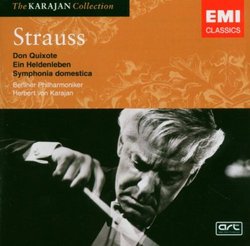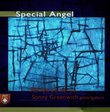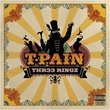| All Artists: Richard [1] Strauss, Herbert von Karajan, Berlin Philharmonic Orchestra Title: Strauss: Don Quixote; Ein Heldenleben; Symphonia Domestica Members Wishing: 0 Total Copies: 0 Label: EMI Europe Generic Original Release Date: 1/1/2005 Re-Release Date: 8/16/2005 Album Type: Original recording remastered, Import Genre: Classical Styles: Forms & Genres, Concertos, Theatrical, Incidental & Program Music, Historical Periods, Modern, 20th, & 21st Century, Instruments, Strings, Symphonies Number of Discs: 1 SwapaCD Credits: 1 UPC: 724347690327 |
Search - Richard [1] Strauss, Herbert von Karajan, Berlin Philharmonic Orchestra :: Strauss: Don Quixote; Ein Heldenleben; Symphonia Domestica
 | Richard [1] Strauss, Herbert von Karajan, Berlin Philharmonic Orchestra Strauss: Don Quixote; Ein Heldenleben; Symphonia Domestica Genre: Classical
|
Larger Image |
CD DetailsSimilar CDs
|
CD ReviewsSplitting the difference Larry VanDeSande | Mason, Michigan United States | 06/23/2006 (3 out of 5 stars) "I'll split the difference between the two other reviews. I admit Karajan is my favorite Strauss conductor. I have owned, on independent recordings, all three of these pieces. They all sound better here than in any earlier EMI pressing. I enjoy the Don Quixote of Karajan and Rostropovich, which is sensitively played and very well-recorded. I find Beecham's ancient mono recording with cellist Paul Tortelier perhaps more Knight-worthy. Beecham's has been out of print a while but still can be found used on Amazon. It will be reissued again, I'm sure. There is still no real competition to Karajan's Ein Heldenleben, in my opinion, and this reading sounds better than his earlier EMI pressing. I have owned and enjoyed the Kempe version cited by a reviewer; it is a good recording, perhaps the second best I've heard. I also enjoyed the somewhat lower voltage rendition conducted by Semyon Bychkov. Some versions I've heard that I don't like include Reiner's new SACD and Karajan's 1959 version on DG, which can't hold a candle to this one. Karajan does well with Symphonia Domestica but there are many very good recordings of this music, perhaps more than either of the diskmates. That cut at the end, which forces you to play the other disk to hear the entire thing, is a big mistake by EMI. As the other reviewer said, the idea is to play this thing uninterrupted for 44 minutes. It is not actually a symphony; it is more like interconnected episodes or tone poems all related to the same thing -- life in the Strauss household. So I'd say buy this if you must have sound that's improved over the older versions, or if you have never heard Karajan do these pieces before. In that case the combination will be worthwhile and you will enjoy a very great treat. I think the $24 list price for this twofer is a bit high, given that it's not SACD and it contains that egregious cut in the domestic symphony. DG last year released a twofer with Karajan's fabulous 1975 Also Sprach Zarathustra and his digital reading of the Alpine symphony (and some other good Strauss pieces) for less than this. BMG has been selling that twofer for $4 for the last few months. Seems to me EMI is exploiting the Karajan name a bit with this one." Great recordings in better sound! Scriabinmahler | UK | 02/09/2007 (5 out of 5 stars) "These three classic accounts of Strauss Tone Poems by Karajan can still stand test of time, as one of the most compelling and powerful performances of each work. Sumptuously recorded and beautifully remastered. Truly great recordings!" Classic readings from the 70s, now in much better sound Santa Fe Listener | Santa Fe, NM USA | 02/18/2006 (5 out of 5 stars) "Pace the reviewer below, it's rather late in the day to judge Karajan in Strauss--their pairing has been acclaimed for fifty years. These recordings date from 1973-74 at a time when Karajan asked for a huge acoustic from his recording engineers--the front-to-back depth is cavernous, with some instruments sounding a mile away (the solo oboe that opens Don Quixote, for example) while Rostropovich's cello jumps out of the speakers. Added to that, the upper register of the violins were shrill, even in the Karajan Edition remastering.
Some of those flaws have been corrected, and now all the performances deliver even more impact than ever before. I do find that Rostropovich is still miked too close--we hear his every note even when the orchestra plays tutti. Too bad, since his playing is detailed and often delicate, by no means an onslaught of star ego. Sinfomia Domestica was a showpiece of Karajan's, and although the violins still shriek a bit, the performance grows in stature by the decade. Finally, we have a 70s Ein Heldenleben that is in much better sound than Karajan's 1959 account on DG. I am not an audio nut, but Strauss's spectacular orchestration requires the best sound possible. This isn't quite it--the Vienna Phil. under Previn on Telarc is better recorded--but the performances is certainly up to Karajan's highest standards. I wish the horns hadn't been miked so distantly, since they are a good deal of the thrill in Heldenleben, but you can't have everything. Some critics carp that EMI has gone to the well once too often with its Karajan discography, but he deserves the latest technology, doesn't he? P.S. - Sept. 2009: Despite my unstinting praise, I must add that Kempe's equally classic account of Sinfonia domestica from Dresden (EMI) is more touchingly tender and less rhetorical than Karajan's. It's now my favorite." |

 Track Listings (16) - Disc #1
Track Listings (16) - Disc #1
